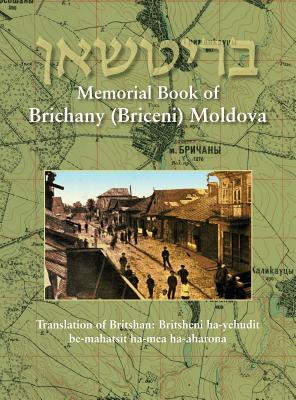Until 1940, Brichany, Bessarabia (now Briceni, Moldova) had been a thriving market town serving some 20 surrounding villages in northern Bessarabia. It was principally a Jewish town with a Christian quarter. Most earned their living as craftsmen or traders, but some were involved in tobacco farming or fruit orchards. Due to Brichany's close proximity to the Romanian and Austrian borders, there was also an important transport business.
Moishe Bershtayn was the owner of three estates, two mills, and a whiskey factory. However, his wealth and prominence did not save his family when the Red Army entered the city in June 1940. Most of the "bourgeois", or "enemies of the people", were arrested and sent to Siberia where they died in labor camps or were murdered. Although the middle and lower class residents were spared deportation, they suffered as their property and businesses were confiscated and a year of famine ensued. Brichany had lost its strong leaders and activists. No one organized resistance. On July 21, 1941, the Red Army left, and on July 22 the Romanians entered Brichany. The Holocaust had arrived. Only 1,000 of its former 10,000 residents survived. Fewer than 100 Jews live in Briceni today.
This book contains the memories of those who survived and those who had left Bessarabia before World War II. Through this English translation, researchers and descendants of survivors and emigrants can learn about the culture, social institutions, and leaders of Brichany. A map is included so that you can walk the streets in your mind's eye as you read the first-person accounts and descriptions of a Jewish community that no longer exists.
Briceni, Moldova is located at: 48 22' North Latitude, 27 05' East Longitude
Alternate names for the town are: Brichany [Russian], Briceni [Romanian], Britshan [Yiddish], Bryczany [Polish], Bricheni, Briceni-Târg, Bricheni Targ, Briceni Sat, Bricheni Sat, Berchan, Brichon, Britshani
